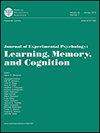Mental effort during mindless reading? Pupil fluctuations indicate internal processing during levels of inattention.
IF 2.2
2区 心理学
Q2 PSYCHOLOGY
Journal of Experimental Psychology-Learning Memory and Cognition
Pub Date : 2024-09-12
DOI:10.1037/xlm0001384
引用次数: 0
Abstract
Mind wandering, an experience characterized by a reduced external focus of attention and an increased internal focus, has seen significant theoretical advancement in understanding its underlying cognitive processes. The levels-of-inattention hypothesis posits that in mind wandering, external attention is reduced in a graded fashion, reflecting different levels of weak versus deep attentional decoupling. However, it has remained unclear whether internal processing during mind wandering, and mindless reading in particular, requires effort and, if so, whether it is graded or distinct. To address this, we analyzed pupil size as a measure of cognitive load in the sustained-attention-to-stimulus task during text reading. We examined whether decoupled external attention is linked to an overall reduction in workload and whether internal focus of attention is graded or represents a distinct cognitive process. Overall, overlooking errors in the text was associated with a small pupil size, indicating reduced effortful processing. However, this effect varied with error type: overlooking high- or medium-level errors (weak decoupling) resulted in reduced pupil size, while overlooking low-level errors (deep decoupling) had no effect on pupil size. Moreover, detecting an error (at any processing level) elicited a task-evoked pupillary response, which was absent when it was overlooked. These findings suggest that weak decoupling reduces internal resource-demanding processing and are in line with the hypothesis that large pupils during deep decoupling may be associated with distinct states of effortful internal processing. They further support both the levels-of-inattention hypothesis and the notion that internal focus is a distinct mode of deeply decoupled processing. (PsycInfo Database Record (c) 2024 APA, all rights reserved).无意识阅读时的脑力劳动?瞳孔波动表明注意力不集中时的内部处理过程。
心智游离是一种以外部注意力降低和内部注意力增加为特征的体验,在理解其基本认知过程方面取得了重大的理论进展。注意水平假说认为,在心智游离中,外部注意以分级的方式减少,反映了不同程度的弱注意与深注意解耦。然而,目前还不清楚在思维游离,特别是无意识阅读时,内部处理是否需要努力,如果需要,它是分级的还是独特的。为了解决这个问题,我们分析了瞳孔大小,以此来衡量文本阅读过程中持续注意刺激任务的认知负荷。我们研究了外部注意力的分离是否与整体工作量的减少有关,以及内部注意力的集中是分级的还是代表一个独特的认知过程。总体而言,忽略文本中的错误与瞳孔缩小有关,这表明费力的处理过程减少了。然而,这种效应随错误类型的不同而变化:忽略高、中级错误(弱解耦)会导致瞳孔缩小,而忽略低级错误(深解耦)则对瞳孔大小没有影响。此外,发现错误(在任何处理水平上)都会引起任务诱发的瞳孔反应,而忽略错误时则没有这种反应。这些研究结果表明,弱解耦减少了内部资源需求处理,并与深度解耦时的大瞳孔可能与不同的费力内部处理状态有关的假设相一致。它们进一步支持了注意力水平假说和内部专注是深度解耦处理的一种独特模式的观点。(PsycInfo Database Record (c) 2024 APA, 版权所有)。
本文章由计算机程序翻译,如有差异,请以英文原文为准。
求助全文
约1分钟内获得全文
求助全文
来源期刊
CiteScore
4.30
自引率
3.80%
发文量
163
审稿时长
4-8 weeks
期刊介绍:
The Journal of Experimental Psychology: Learning, Memory, and Cognition publishes studies on perception, control of action, perceptual aspects of language processing, and related cognitive processes.

 求助内容:
求助内容: 应助结果提醒方式:
应助结果提醒方式:


